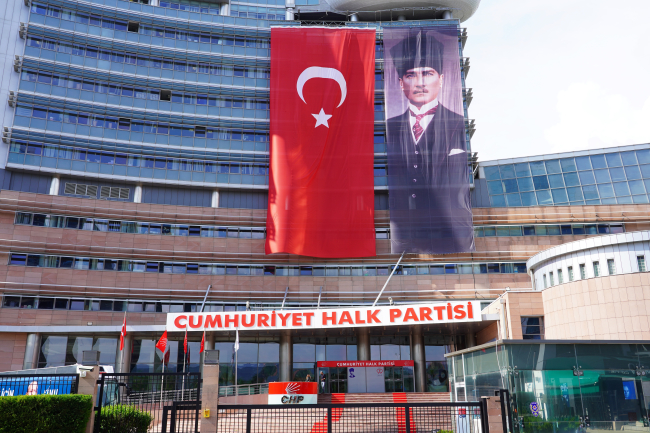Religion and Politics in Egypt Today: Ideological Trends and Future Prospects

The dynamics of Muslim-Copt relations and how they are managed by the Church and the State are part and parcel of Egypt’s transition post-Mubarak because they underlie the discussions concerning Egypt’s future as a civil State. The treatment of Copts and other religious communities under a new government will be a key indicator of the maturity of Egypt’s democratic transition.
The sudden opening up of political space since the uprising of 25 January 2011 began has given visibility to the range of political and religious streams of thought that exist in the Arab world’s most populous country. Although Egypt’s uprising was largely about reclaiming political agency and social justice for the Egyptian people, religion has contributed to the shape of Egypt’s struggle to redefine itself since the ouster of former president Hosni Mubarak on 11 February 2011. Under Mubarak the political scene was often presented in black and white terms as being divided between religious extremists (then normally represented by the Muslim Brotherhood) and Mubarak’s National Democratic Party. The latter was represented as the only force preventing Egypt from becoming a radical theocracy. This covered over the diversity that is now apparent. It is clear that Islamists are a powerful political force, yet they also face broad and varied opposition and do not represent the only ideological trend to emerge. Mohammed Morsi of the Muslim Brotherhood did not have an easy victory in Egypt’s presidential election in June 2012 and continues to face open and direct criticism. Nevertheless, the Muslim Brotherhood’s rise to power has caused alarm among sections of the Egyptian population and the international community. Evidently, the effect of religion on the political transition in Egypt cannot be ignored if the dynamics of the social and political changes are to be understood.

Available in:
Regions and themes
ISBN / ISSN
Share
Download the full analysis
This page contains only a summary of our work. If you would like to have access to all the information from our research on the subject, you can download the full version in PDF format.
Religion and Politics in Egypt Today: Ideological Trends and Future Prospects
Related centers and programs
Discover our other research centers and programsFind out more
Discover all our analyses
RAMSES 2025. Between Powers and Powerlessness
Never before have there been so many powers able to upset the international balance of power, and never before have the dominant powers seemed so powerless to counter the fragmentation of the world.
Out of Thin Air but More than a Mirage: The Politics of Saudi Arabia's Nascent Music Industry
This study critically examines Saudi Arabia’s nascent music industry, which is promoted as a key element of Vision 2030, Crown Prince Mohammed bin Salman’s strategic framework to diversify the kingdom’s economy. It explores how state-led investments in music and entertainment intersect with authoritarian governance. The author neither dismisses these investments as conspicuous spending nor reproduces an alarmist narrative of impending cultural imperialism. The article takes a political sociology approach to understand how Saudi entertainment plans consolidate domestic power and reshape regional cultural landscapes.
Hostage diplomacy of the Islamic Republic of Iran. The case of Europeans detained in Iran
The so-called hostage diplomacy of the Islamic Republic of Iran refers to a political and diplomatic strategy in which Tehran uses the detention of Western nationals, dual citizens, or Iranian citizens residing in Europe, Australia, or the United States as leverage in diplomatic negotiations. This practice aims to exert pressure to secure political, economic, or diplomatic concessions as part of Tehran’s asymmetric response strategy. Hostage diplomacy remains a controversial yet effective tool from the perspective of the Islamic Republic of Iran, given its context of economic sanctions and diplomatic isolation.
Is the Republican People’s Party (CHP) Rising from the Ashes?
The victory of the CHP [Cumhuriyet Halk Partisi, Republican People’s Party] in the Turkish municipal elections of March 2024 firmly established it as the leading party of opposition to the Islamic-conservative AKP [Adalet ve Kalkınma Partisi, Justice and Development Party], which has been in power since 2002.







